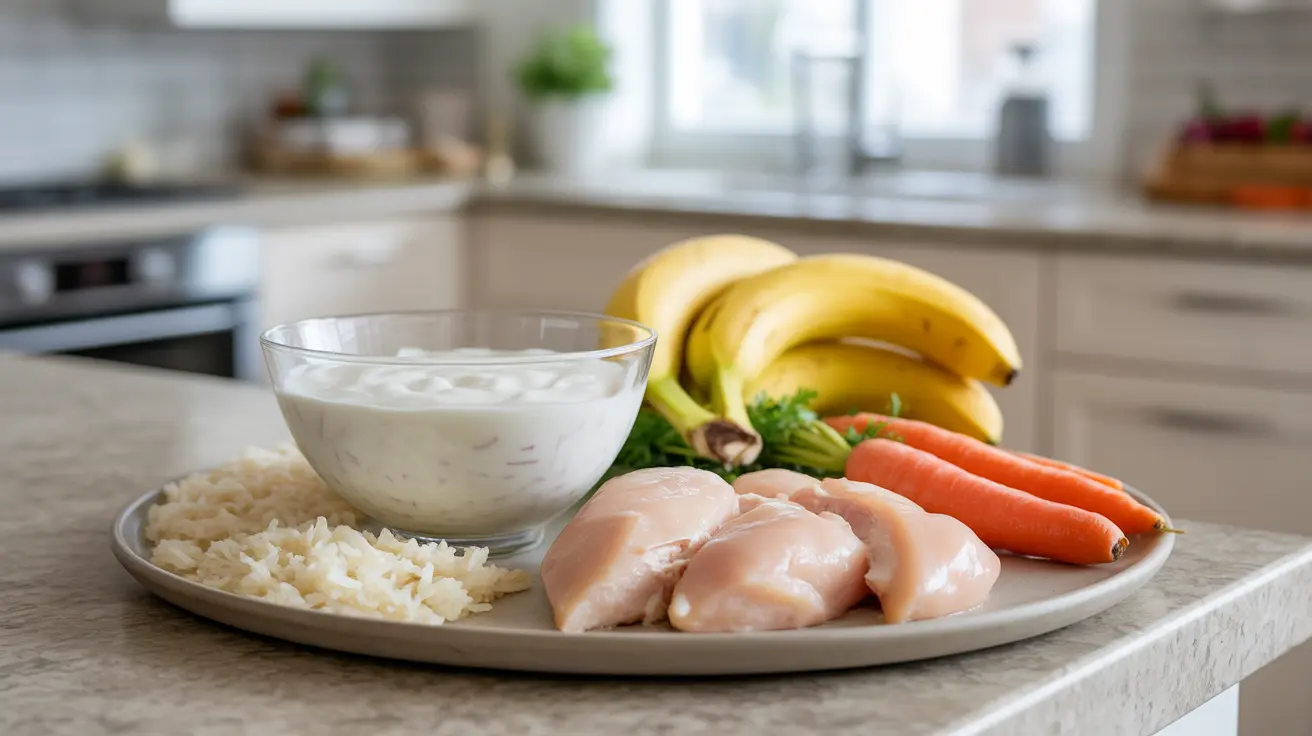Managing ulcerative colitis flare-ups through diet can significantly impact your comfort and recovery. While there's no one-size-fits-all approach, understanding which foods to eat and avoid during a flare can help reduce symptoms and promote healing. This guide will help you navigate nutrition during these challenging periods.
Understanding Dietary Needs During Flares
During a colitis flare-up, your digestive system becomes particularly sensitive, making food choices crucial for symptom management. The goal is to provide adequate nutrition while minimizing intestinal irritation and inflammation.
Safe and Nourishing Food Options
Low-Residue Foods
Low-residue foods are easier for your inflamed digestive system to process. Consider including:
- White bread and refined grains
- Well-cooked white rice
- Skinless white potato
- Tender, well-cooked lean meats
- Eggs
Protein Sources
Protein is essential for healing and maintaining strength during flares. Focus on:
- Fish (especially salmon and other fatty fish)
- Smooth nut butters
- Tofu
- Well-cooked chicken without skin
- Turkey
Managing Dairy Consumption
Dairy tolerance varies significantly among individuals with ulcerative colitis. If you choose to include dairy, consider:
- Low-fat yogurt with live cultures
- Lactose-free alternatives
- Small portions to test tolerance
- Calcium-fortified plant-based alternatives
Safe Fruit and Vegetable Choices
While fiber can be challenging during flares, certain produce can be tolerated when properly prepared:
Fruits
- Banana (ripe)
- Cantaloupe (without seeds)
- Cooked or canned fruits without skins
- Applesauce
Vegetables
- Well-cooked carrots
- Peeled cucumber (no seeds)
- Thoroughly cooked spinach
- Squash (peeled and cooked)
Beneficial Supplements and Natural Aids
Consider incorporating these beneficial elements into your diet:
Omega-3 Sources
- Fatty fish
- Fish oil supplements (consult your doctor)
- Purified cod liver oil
Probiotic-Rich Foods
- Kefir (if dairy is tolerated)
- Fermented vegetables
- Kombucha (in moderation)
Low-Fiber Diet Implementation
Following a low-fiber diet during flares can help reduce symptoms. Key points include:
- Choose refined grains over whole grains
- Remove skins and seeds from fruits and vegetables
- Cook vegetables until very soft
- Avoid raw produce during acute flares
Frequently Asked Questions
What are the best foods to eat during a colitis flare-up to soothe symptoms and get enough nutrients? The best foods include low-residue options like white rice, well-cooked lean meats, eggs, and smooth nut butters. These provide essential nutrients while being gentle on the digestive system.
Can I eat dairy or should I avoid it when my ulcerative colitis is flaring? Dairy tolerance is individual. Some may tolerate low-fat yogurt with live cultures or lactose-free options, while others should avoid dairy completely during flares. Start with small amounts to test your tolerance.
Are there any specific fruits and vegetables that are safe during a colitis flare, or should I avoid them? Safe options include well-cooked, peeled vegetables like carrots and squash, and soft fruits like ripe bananas and cantaloupe. Avoid raw produce and items with seeds or tough skins.
How do omega-3 fatty acids and probiotics help with ulcerative colitis flares, and what foods contain them? Omega-3s help reduce inflammation and can be found in fatty fish and fish oil supplements. Probiotics support gut health and are present in yogurt, kefir, and fermented foods.
Should I follow a low-fiber diet during a colitis flare, and when is it safe to reintroduce more fiber? Yes, following a low-fiber diet during flares can help reduce symptoms. Gradually reintroduce fiber when symptoms improve, working closely with your healthcare provider to determine timing.
Remember to always consult with your healthcare provider before making significant changes to your diet, as individual needs may vary based on the severity of your condition and other health factors.




